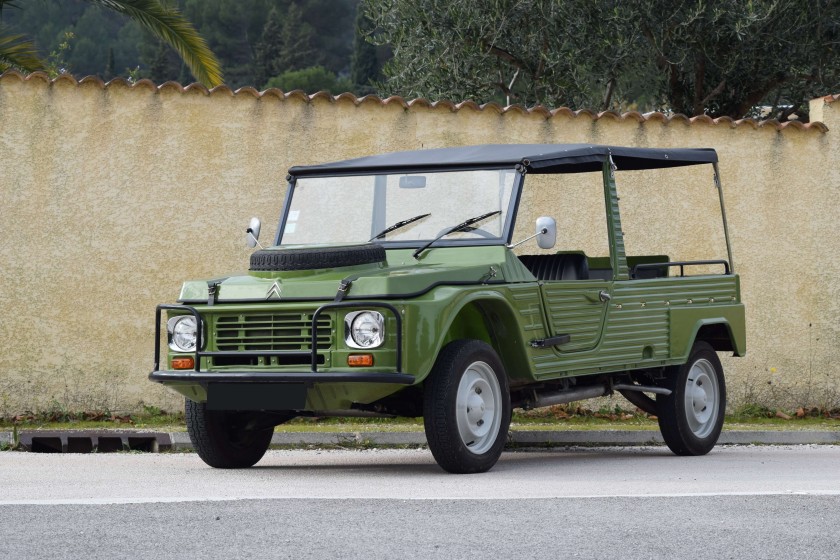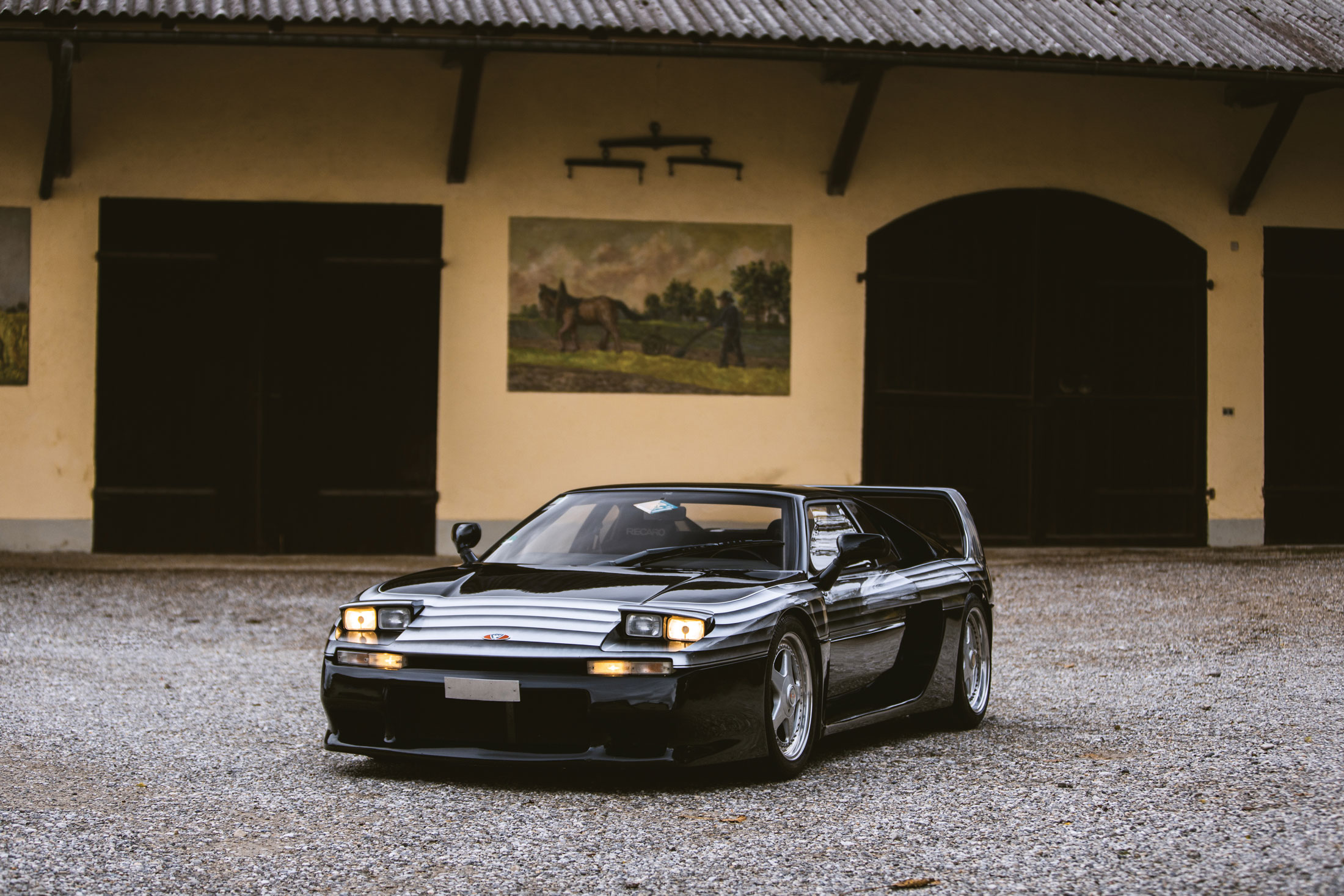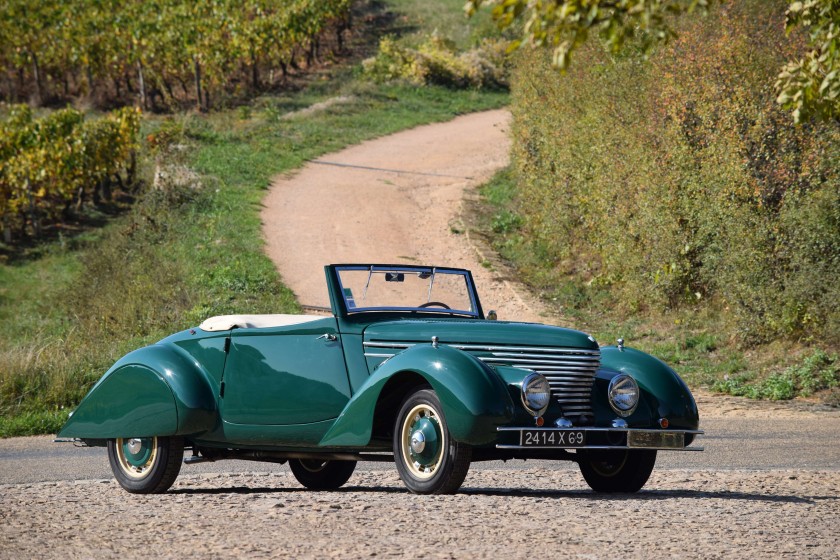Media | Articles
8 weird French cars to ogle at Rétromobile 2019
They do things just a little bit differently in France. Drinking coffee out of a bowl, for example. Most beaches and swimming pools will turn you away for wearing shorts instead of a Speedo. It is technically legal to marry a dead person—or, for that matter, your first cousin. And when it comes to matters automotive, things only get weirder. Want proof? Just check out the annual auctions surrounding the Rétromobile show in Paris.
We always look forward to these sales because they offer a glimpse of all the unusual European things we just don’t see on this side of the pond. Naturally, a lot of the strangest things on offer at Rétromobile come from the French Republic, and we’ve combed through the consignments to find the best, or at least the oddest, of the bunch.
1980 Citroen Mehari

Pre-sale estimate: €25,000 – €35,000)
Marketplace
Buy and sell classics with confidence
If the Volkswagen Thing just isn’t weird and ugly enough for you, the French version might be right up your alley. The Mehari is based on the 2CV, including the independent suspension and the pokey little flat-twin engine. Citroen introduced a 4×4 version at the end of the 1970s. The bodies are made of plastic; in lieu of paint, color was added to the mixture during the moulding process. Those mixed-in hues tended to fade quickly, so this one has gotten a conventional paint job in a factory correct Montana-Green. Line it up next to a VW Thing, a Mini Moke, or even a Fiat Jolly — and enjoy the world’s slowest race to a beach.
1994 Venturi 400 GT Trophy

Pre-sale estimate: €120,000 – €200,000
Impress your friends with this bit of trivia: The first car to come standard with carbon-ceramic brakes was, in fact, not a Porsche or a Ferrari. It was France’s own Venturi 400 GT. And to put those brakes to the test, there’s a 400-hp V-6 behind the driver. It’s actually the same Peugeot-Renault-Volvo (PRV) V-6 that pushed along the DeLorean, but in the Venturi’s case it’s strapped with two turbochargers. Like Vector, Venturi was one of those ambitious upstarts that took on the supercar establishment but ultimately just didn’t last. This car was the 25thVenturi built and the company only ever built a few dozen cars total. It was raced from 1993-95 before being put back to road specs.
1963 Citroen Ami 6

Pre-sale estimate: €20,000 – €30,000
Citroen may have built over 1.8 million Amis, but that doesn’t stop it from being a plain-old weird car, and further proof that Citroen are the masters of strange. Just look at it. From the rear window that’s raked the wrong way to its squinty-eyed little face and single-spoke steering wheel (a Citroen hallmark), there’s almost nothing about it that’s conventional—but that adds to its charm. Plus, its name means “friend” in French, so it’s hard not to like this restored Ami 6 on offer from Bonhams.
1991 Citroen BX 4 TC

Pre-sale estimate: €60,000 – €80,000
The BX 4 TC looks like an original Audi Sport Quattro from Bizarro World, and there’s good reason for that. In those crazy days of Group B rallying in the 1980s it was mostly Peugeot carrying the torch for France with the 205 T16—but by 1986 Citroen wanted in on some of the glory as well. The problem was that Citroen sort of missed the point of Group B. Instead of designing a purpose-built rally car then worrying about building the road cars later, the company tried adapting an existing model to Group B regs. The resulting car just wasn’t competitive.
Citroen only ran the rally car a few times before pulling the plug, and Group B was cancelled after the 1986 season anyway. Nor did the firm finish building the required 200 road cars for homologation. Most of the existing cars were bought back by Citroen for salvage and destruction. There’s probably only a handful left, and that’s a real shame for any fan of ‘80s aesthetics. That wall of rectangular lights, those boxy flares, those funky graphics, and oh my, those wheels!
1953 Renault Frégate Ondine by Ghia

Pre-sale estimate: €80,000 – €100,000
The automotive climate after World War II nearly killed off the once-flourishing coachbuilding industry in Europe, but there were plenty of holdouts and Italy’s Ghia is of course one of the more famous ones. This car, based on the Amiral, wears handsome Ghia cabriolet bodywork and was on the Renault stand at the 1953 Paris Motor Show. While well received, it would have been too expensive for Renault to actually produce. This is the only example known to have been built.
1954 Panhard X86 Dolomites by Pichon & Parat

Pre-sales estimate: €100,000 – €130,000
The Panhard Dyna is another strange-looking French car in its own right, plus it has other unusual features such as an extensive use of aluminum in its construction and an air-cooled flat-twin engine. France in the ‘50s and ‘60s was home to all sorts of unusual small displacement performance cars, and the Panhard’s light weight made it a popular car to modify. It served as the basis for the streamlined “Dolomites” made by French coachbuilders Pichon-Parat. They made about five-dozen of the Dolomites; this one, painted in appropriate French blue, raced at the Tour de France in 1954 and won its class at the Aix-en-Provence rally in the same year.
1939 Citroen Traction 11BL Cabriolet by Clabot

Pre-sale estimate: €250,000 – €350,000
Citroen’s Traction Avant was a pretty revolutionary car in that it featured unibody construction, four-wheel independent suspension and front-wheel drive all the way back in the 1930s, but its styling was pretty conventional for the day even if it was attractive. That’s where coachbuilders like Robert Clabot came in. Clabot came to specialize in modifying Traction Avants and he built a fair number of these cabriolets that came off looking like a more expensive Saoutchik-bodied car (Clabot, in fact, previously worked for Saoutchik). Acording to Artcurial, this is one of only three cars left.
1952 Dick-Ducati Tricycle

Presale estimate: €10,000 – €15,000
A car for the man with nothing to prove, the little Dick is a French three-wheeled microcar with an Italian heart, in this case a 175cc Ducati single. It’s cute. It’s rare. It’s charming. It’s French. More importantly, the jokes are absolutely endless, and no car has had this much comedic potential since the Ford Escort.









